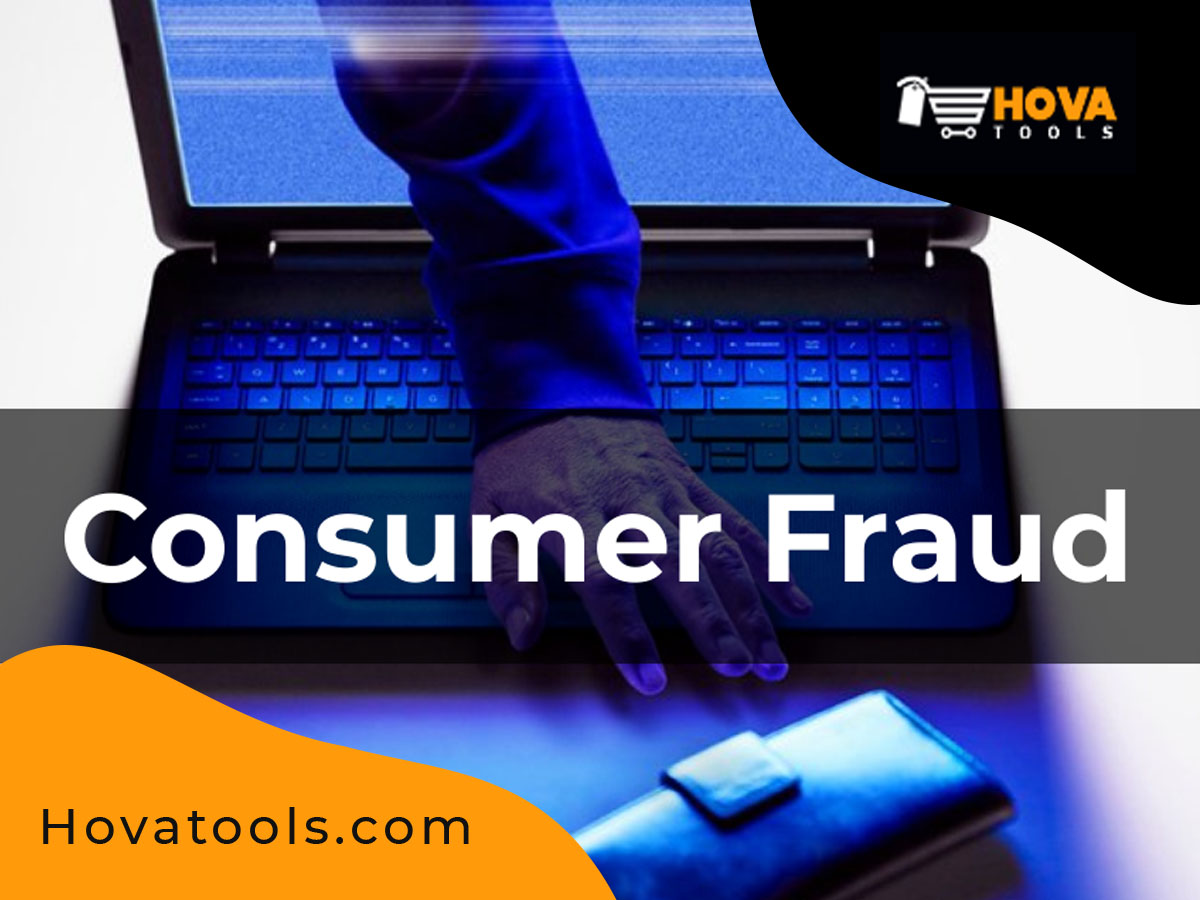The most common types of consumer fraud
Consumer Fraud happens when an individual experiences a monetary or individual misfortune. Fraud can include the utilization of beguiling, unreasonable, deceiving, or bogus strategic policies. The fraudsters regularly target senior residents, and undergrads however all purchasers are in danger of extortion. Types of consumer fraud
The Consumer Financial Protection Bureau (CFPB) is a government agency. That protects consumers from financial fraud and scams by making sure banks and financial companies treat consumers fairly.
“Scammers are constantly finding new ways to steal your money. You can protect yourself by knowing what to look out for.”—the CFPB.
Here are some of the most common frauds that victimize consumers. And tips on how to protect yourself from becoming affected.
Identity Theft
Identity theft is a crime that occurs when someone steals your personal information. Which can include your name, social security number, bank account number, as well as credit card information.
The goal of the thieves is to use your personal information to assume your identity or the identity of the victim. Once they have your identity, they can open credit cards in your name and charge purchases. Thieves might open utility accounts in your name that can be used as “proof”. That the thieves are real or legitimate people since utility addresses are often sorted for. For proof of residency on loans and other financial products.
Also, fraudsters can access your bank account and drain the funds. In some cases, thieves have accessed the health insurance of their victims. And had medical charges and treatments billed to the insurance companies. The fraudsters can also file a tax return and collect a refund.
Some common signs that you might be a victim of identity theft include:
- Withdrawals from your bank accounts that you didn’t make
- If your bills don’t come in the mail anymore—meaning the fraudsters changed your address so they can open financial products in your name
- Your getting calls from debt collectors about credit cards and debts that you never opened or borrowed
- You check your credit report and find accounts that you never opened
- You get bills from hospitals and medical providers for treatments that you never sought
Although the victims of identity theft are typically adults, more and more children are falling prey to fraudsters. In 2018 as reported by NBC News, more than one million children were victims of identity theft in the United States, which was estimated to cost $2.67 billion in losses. Since children’s Social Security numbers don’t have any credit history, thieves can open credit cards and bank accounts in their names because their credit reports are clean.
The FTC or the Federal Trade Commission’s Bureau of Consumer Protection is charged with stopping unfair, fraudulent, and deceptive business practices. The FTC collects complaints from consumers and sues companies that are engaged in fraud. The bureau also educates consumers and makes rules designed to protect them from identity theft. If you believe you’re a victim of identity theft, the FTC has a website that outlines the steps to take and how to file a complaint.
KEY TAKEAWAYS
- Consumer fraud occurs when a person suffers from a financial loss involving the use of deceptive, unfair, or false business practices.
- With identity theft, thieves steal your personal information, assume your identity, open credit cards, and bank accounts, and charge purchases.
- Mortgage scams are aimed at distressed homeowners to get money from them.
- Debit card fraud is when someone takes your information off the card and makes purchases.
Mortgage Fraud
The FBI deals with thousands of mortgage fraud cases each year. Today’s mortgage scams are often aimed at distressed homeowners, according to the FBI’s Financial Institution Fraud Unit. These scams include foreclosure rescue schemes, loan modification schemes, and equity skimming, among others. They are often by real estate and mortgage professionals who misuse their specialized knowledge and authority.
The FBI recommends that consumers protect themselves against mortgage fraud by seeking referrals and avoiding unsolicited relationships and checking their licenses. Also, walk away from any transaction that’s high pressure or seems too good to be true, and don’t sign any paperwork that you don’t understand.
Credit and Debit Card Fraud – CONSUMER FRAUD
If you notice charges on your credit card that aren’t yours, call your bank immediately to report it and have the card canceled. Your credit card number could have been picked by an employee at a company where you purchased goods. Often, fraudulent purchases are made online. The good news is that consumers are not typically responsible. For the amounts lost in cases of credit card fraud. The Fair Credit Billing Act limits the liability to $50, and oftentimes, there’s no cost at all.
Debit card fraud can happen to anyone, including a certified fraud examiner (CFE)like Ken Stalcup. Mr. Stalcup worked for Somerset CPAs in Indianapolis at the time of this interview and used his debit card to pay the bill at a local restaurant. According to Stalcup,
“My waitress took my card and walked to the register, out of my sight, and returned with my receipt and the card. I signed the copy and even added a nice tip.”
FURTHERMORE
Two days later, his bank contacts him to let him know they were shutting down his account and his debit card because the bank suspects the account has encountered a compromise. His card was to purchase a computer and office supplies at a store 600 miles from his home.
“By allowing my waitress to carry my card off, she was able to swipe my card and sell my account information to other people who were able to steal from my account,” he says.
Though his bank caught the fraud quickly, he recommends that consumers avoid letting their debit cards out of sight and check their accounts daily.
Fake Charities
The Fake charities type of consumer fraud uses the same techniques to steal your money that legitimate charities use to raise funds, according to the Federal Trade Commission (FTC). Before you donate, make sure you know where your money is going.
Ignore high-pressure pitches, don’t give cash, and be especially careful in the wake of natural disasters, which is when con artists prey on the sympathetic and generous. Get the charity’s contact information and check out the organization before you give. Make sure the organization is legitimate and is an IRS-approved nonprofit. Also, it’s best to research if the donations are being for its purpose.
Fake Lotteries
The typical lotteries type of consumer fraud targets the elderly and originates with a phone call or postcard from a foreign country. The FTC receives tens of thousands of complaints about lottery fraud each year. Because many victims don’t report being scammed, officials estimate the problem’s scope is far greater.
These fake international lottery scams ask the “winner” to send money to cover taxes on the prize. Victims who pay are then harasse for more money. The stolen money is rarely recovered. Furthermore, victims’ names and contact information may get placed on “sucker lists” that are sold to fraudsters who will target the same victims for further scams.
ALSO
The FTC says consumers should never pay money to collect on a lottery or other prize. Be especially skeptical if you’re told you’ve won a prize for a lottery or sweepstakes you don’t recall entering. Don’t share your credit card or bank account numbers or send money, even if the “organization” awarding the “prize” sends you a check first. Also, since U.S. law does not allow the cross-border purchase or sale of lottery tickets by mail or phone, assume anything claiming to be an international lottery is illegitimate.
Debt Collection Fraud – a type of consumer fraud
There are scammers who call and pose as a collection agency calling to collect a debt. They will try to get your personal information, such as account numbers or your Social Security number. Don’t give any personal information to anyone over the phone or via email. They may try to coerce and threaten legal action to scare you into giving up your financial information. Often, they’ll be vague about the amount of debt you owe. Also, they won’t give you their address and phone number to prevent you from verifying who they are or their claims.
The Bottom Line
“Although consumers are protected by a number of consumer protection laws, including the Consumer Credit Protection Act, there are still many opportunities for people to be taken advantage of by unethical professionals and corporations,” says Steven Wolf, Executive Director and Forensic Accountant in the Washington, D.C., office of Capstone Advisory Group.
Henceforth, WE WISH TO ANNOUNCE THAT OUR SERVICES ARE NOT AVAILABLE TO PEOPLE FROM NIGERIA AND INDIA. THESE ARE USELESS TIME WASTERS AND THIEVES TRYING TO BEG OR SCAM US OF OUR PRODUCTS. OUR SERVICES ARE NOT FREE AND PAYMENT IS UPFRONT
A LOT OF FOOLS FROM NIGERIA AND INDIA. on the off chance that YOU DON’T TRUST TO USE OUR SERVICES, DON’T CONTACT US AS WE HAVE NO FREE SERVICE
CONTACT US FOR PURCHASE/INQUIRIES, WE RESPOND ALMOST INSTANTLY
HI BUYERS, WE ARE A PROFESSIONAL CARDING AND HACKING TEAM. HOVATOOLS HAS BEEN AROUND SINCE THE TIME OF EVO MARKET, ALPHABAY, WALLSTREET MARKET AND MORE. WE REMAIN STRONG AND RELIABLE IN THE INDUSTRY, ALWAYS PROVIDING YOU WITH THE BEST QUALITY TOOLS TO HELP YOU MAKE MONEY AND MAXIMIZE PROFIT IN THE FRAUD GAME.
TO GET STARTED, YOU CAN VISIT OUR ONLINE SHOP/STORE TO BUY EVERYTHING YOU NEED TO START CASHING OUT. AT THE SHOP YOU GET Accounts & Bank Drops CVV & CARDS DUMPS PERSONAL INFORMATION & SCAN.
BANK HACKING SOFTWARE – WIRE/ACH DARKWEB MONEY TRANSFER HACKERS
Buy Fresh Credit Cards for Carding, BIN LIST Buy Bank Login, RDP, Buy Hacked Paypal accounts. Contact us to buy all tools and carding software. CLICK HERE TO VISIT OUR SHOP
Buy Socks 5, Email Leads, Buy Latest CC to Bitcoin Cashout Guide, Buy Hacked Zelle transfer , Western Union Money Transfer Hack, Buy Hacked Money Transfer service to your bank account.
Enroll for Paid private Carding Class.




